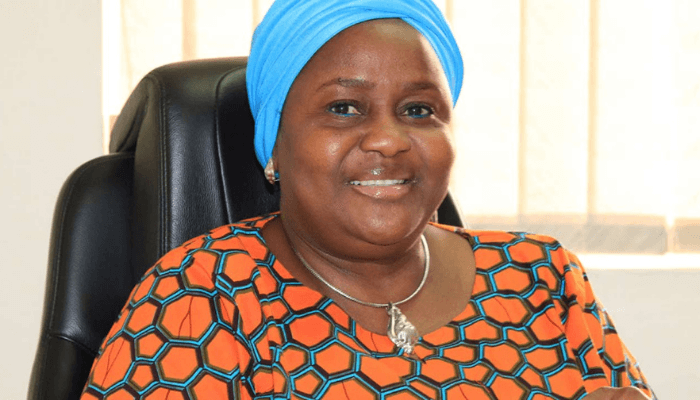No doubt, Nigeria’s pension industry has grown over the last 18 years since the Pension Reform Act (PRA) was initially enacted in 2004.
The industry has ensured that the average Nigerian worker is able to retire in peace and dignity. The Act brought about the professionalisation of pension fund administration and the growth of the pension industry in the country. There are many gains that the pension industry has achieved and there is a great need to protect these gains from individuals seeking personal gain.
Over the last number of years, there are many actors trying to reverse these gains, usually from seeking to amend the Act that would allow groups of people to leave the scheme.
These acts are typically done through legislative actions as certain groups sponsor bills to exit the Contributory Pension Scheme (CPS).
Recently, it would be recalled that the House of representatives has passed a bill to amend the Pension Reform Act(PRA) 2014, to exempt personnel of the National Assembly(NASS) Service from the contributory pension scheme(CPS) while also establishing the National Assembly Service Pensions Board in the process.
The proposed legislation titled: ‘Bill for an Act to Amend the Pension Reform Act, 2014, to Exclude/Exempt the National Assembly Service from the Contributory Pension Scheme and Establish the National Assembly Service Pension Board; and for Related Matters (HB. 2025)’, was sponsored by the chairman, Committee on National Planning and Economy Development, Hon. Olododo Cook.
The Bill sponsored by Cook, had passed the second reading and with the approval, it would be slated for the final (third reading) and passage into law.
While the move by the National Assembly may have been done in good faith, market observers believe this is walking backward to the Defined Benefit Scheme(DBS) of the old pension scheme that was tainted with corruption and misappropriation of fund, even as it will equally pile up further overhead on the federal government that is currently struggling to offset its huge debt profile.
The NASS Move
Speaking on the reason for the planned exit, in July, 2022, Hon. Olododo Cook said, the bill intended to exit the National Assembly Service from the application of the contributory pension’s scheme under the Pensions Reform Act, 2014, and the board, when established, would be charged with the responsibility of administering the pension’s scheme for personnel of the service.
According to him, “The proposed amendments provide that there is established Pension Board (in this bill referred to as ‘the Board) which shall be charged with the responsibility of managing payment of pensions and gratuities to all personnel of the service. The bill shall apply to all personnel of the National Assembly Service, including those who had retired before the commencement of this bill. The retirement benefits of personnel referred to in sub-Section (2) shall be adjusted to be commensurate with the provisions of this bill.
“They shall be charged on and paid out of the Consolidated Revenue Fund of the federation; all such sums of money as may, from time to time, be granted by the federal government by way of pension and gratuity in accordance with this bill.
“The proposed legislation states that no pension or gratuity shall be granted to any personnel except on his retirement from the service in any of the following circumstances: after serving for 40 years or attained the age of 65 years, whichever is earlier; upon voluntary retirement after serving for not less than 10 years; upon compulsory retirement under the provisions of Section 5 (1) of this bill; upon compulsory retirement for the purpose of facilitating improvements in the service so that greater efficiency or economy may be effected.”
PFAs Fume
While acknowledging that this bill was passed in good faith, the Pension Fund Operators Association of Nigeria(PenoP) believe that an important bill of this nature, should go through the standard and due legislative processes.
PenOp, through its executive secretary, Oguche Agudah, added that, “one of such processes is the convening of a public hearing where all stakeholders that are affected by the bill are invited to discuss and engage.”
Stating that all stakeholders, such as the workers union, labour, the Pension Fund Operators, the Regulators, Employers of labour and other critical stakeholders were not engaged in the process, he pointed out that “we are also aware that some principal officers of the House who normally should oversee the passage of bills were unavoidably absent, bringing the integrity of the process into question. We are forced to question whose interests this bill is geared to serve.
“It needs to be ascertained, why the bill was passed without the crucial input of citizens and stakeholders?
“This breach of sacrosanct legislative processes and the rather hurried passage of this bill, the operators said, triggers serious concerns and should be revisited urgently in the interest of both National Assembly staff, the pension industry and the nation in general.
“As a matter of fact, there are a number of proposed amendments to the current pension act that have been proposed within the house for a number of years. So, for this bill to pass quickly, while the others left unattended to speaks to ulterior motives,” PenOp stressed.
To him, “It is pertinent to note that the federal government had earlier issued a white paper stating that the police force or any other government agency should not leave the Contributory Pension Scheme as the scheme was the federal government’s way to have structured and sustainable pensions for its employees.”
Conclusion
Similarly, economic analysis and actuarial reports have shown that it would be impractical and irresponsible to move the police or other sectors of the Federal Civil Service from the current Contributory Pension Scheme (CPS) to a Defined Benefit Scheme (DBS) because of the amount of funds this would cost, the fiscal position of the government and the effect it would have on future retirees.
While this recent bill to exit the National Assembly staff seems quite puzzling and at a cross purposes with the fiscal situation of the country or the stated position of the executive, market observers said passage of such bill into law would mean the federal government is ready to bear the consequences of this additional financial burden at a critical time Nigeria is suffocating under its pilling debt burden.





